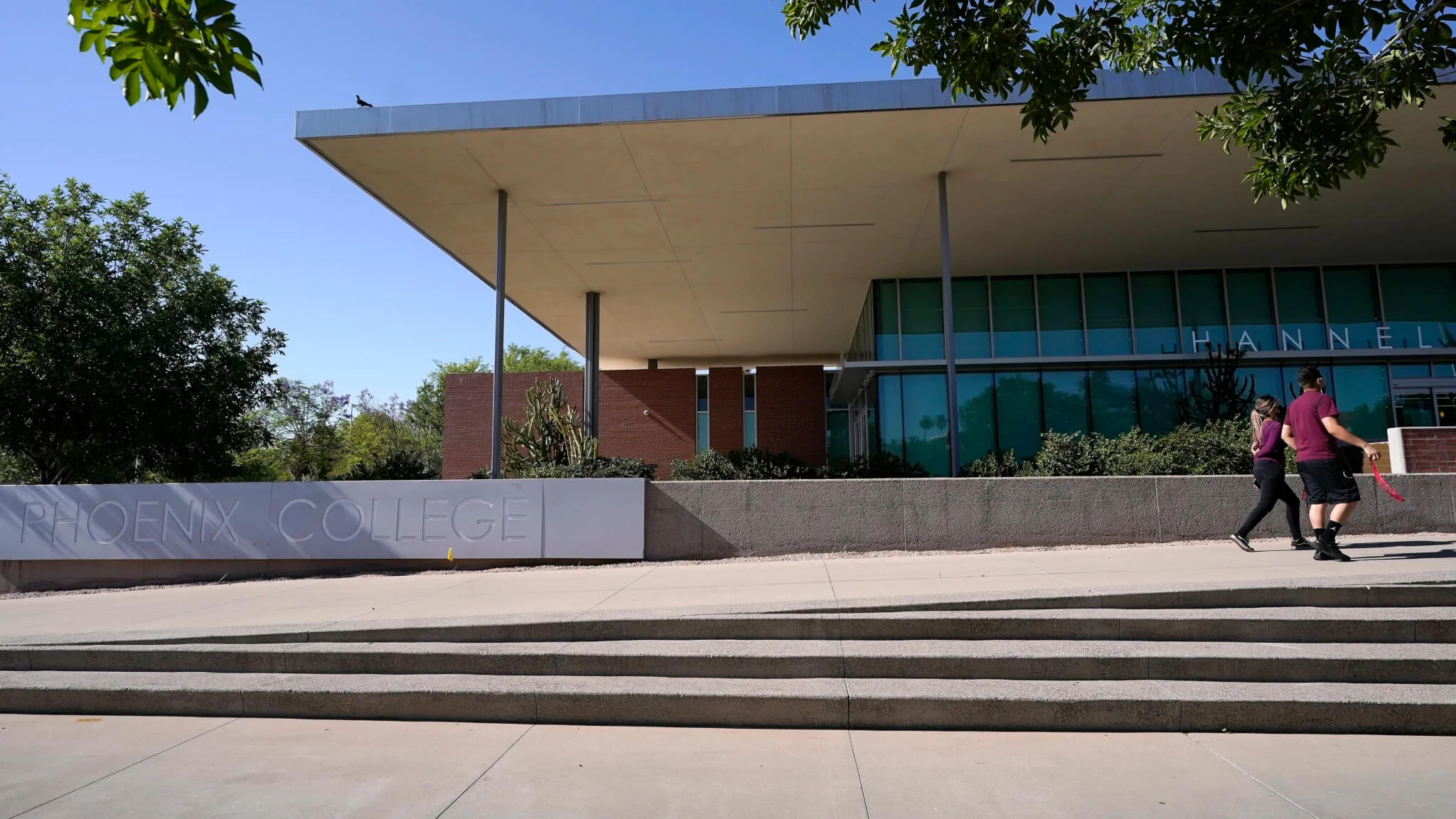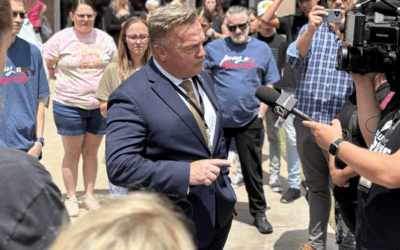
(AP Photo/Ross D. Franklin,File)
Arizona now joins at least 18 other states that offer in-state tuition to all students who otherwise qualify regardless of immigration status.
Arizonans are witnessing a significant shift. Aside from the monumental transfer in gubernatorial power from an anti-immigrant Republican to a progressive Democrat, the undocumented community is also celebrating a major victory.
Arizona voters passed Proposition 308, an initiative to extend less expensive in-state college tuition to some non-citizen students, with 1,227,858 votes as of Tuesday morning. As a result, Arizona joins at least 18 other states, including California and Virginia, that offer in-state tuition to all students who otherwise qualify regardless of immigration status.
RELATED: Why This DACA Recipient Was Forced to Choose Harvard Over One of Arizona’s Universities
“Prop 308 won because young people were impacted by the inequities in education,” said Reyna Montoya, the CEO and founder of Aliento AZ. Montoya and her organization, a nonprofit that aims to empower undocumented youth, spearheaded efforts to educate voters about Prop 308. “I often think about little Reyna, who was only 17, feeling so disempowered, not knowing if I would ever go to college. Almost two decades later, through Aliento AZ, we worked alongside Arizona.”
In 2006, Arizonans voted in favor of Prop 300, a policy prohibiting undocumented residents from getting in-state tuition benefits. As a result, Arizona became one of six states that barred undocumented students from in-state tuition.
This law meant undocumented Arizona students could pay up to 50% more for tuition at the state’s public universities than other in-state residents. That measure forced many undocumented college-bound students who could not afford school in Arizona to seek higher education in other states.
“As much as we want to believe we can stay in Arizona, stay with our families, stay in our home, we have to be prepared for the reality we currently live in,” Benitez Sanchez, an Arizona resident that relocated to Boston to attend Harvard University, told Copper Courier last year. “Most of us are from low-income families and don’t have access to the money that is asked of us in order to attend these local universities.”
So, who qualifies for in-state tuition under Prop 308?
Anyone who has lived in Arizona for at least two years and graduated from an Arizona high school would be charged the same in-state tuition rates at the state’s public colleges and universities as their fellow Arizona high school graduates. More than 3,600 students are expected to benefit from the new in-state tuition policy annually.
Advocates say tens of thousands of future non-citizen students who have been in Arizona for years could potentially benefit from the proposition in a state where an estimated 275,000 migrants are living without authorization.
The measure will allow qualifying non-citizen students to pay the current in-state undergraduate tuition of $10,978 per academic year at Arizona’s state universities. Those universities do not have a specific rate for non-citizens brought to the US as children. Still, officials say more than 300 students are paying a non-resident rate for Arizona high school graduates, which is 150% of in-state costs.
Is real immigration reform next?
Now that undocumented students have a majority of support, some Arizonans hope the measure will help spark momentum for broader immigration reform in Congress, including the passage of the DREAM Act. The proposal, which was first introduced in Congress in 2001, would permanently protect certain immigrants who came to the US as children who are otherwise vulnerable to deportation.
“This shows there is broad bipartisan consensus about immigration solutions,” said Rebecca Shi, executive director of the national American Business Immigration Coalition Action.
Although concerns about security along the US-Mexico border remain high in Arizona, advocates say that attitudes have changed somewhat concerning young people brought to the US by their families when they were small children.
RELATED: DACA Recipients’ Future Uncertain—Again—After Latest Court Ruling
“I’m proud of Arizona and how far we have come,” said Bob Worsely, a retired Republican state legislator and co-chair of the coalition that backed passage of Proposition 308.
For now, Arizona undocumented students are celebrating that they’ll be able to afford college in their hometown and remain close to friends and family.
“I will graduate from high school this school year, and as an undocumented student, I have struggled more than my peers due to the lack of immigration status,” Maria Dominguez, an impacted student, said. “One of the more difficult things has been living with the idea that I may not be able to attend college due to the lack of support. But now, with the passing of Proposition 308, my life will change. I will have the opportunity to reach my dream of becoming a neurologist, regardless of my immigration status.”
The Associated Press contributed to this story.
Looking for the latest Arizona news? Sign up for our FREE daily newsletter.

Phoenix Mercury star Brittney Griner details Russian prison ordeal in book
WNBA star Brittney Griner said her days of playing basketball overseas during the WNBA offseason are over. Brittney Griner continues her efforts to...

After Barstool Sports sponsorship fizzles, Snoop Dogg brand is attached to Arizona Bowl, fo shizzle
TUCSON, Ariz. (AP) — Snoop Dogg is putting his name on the Arizona Bowl for what will be the first partnership between an alcohol brand and a...

The 7 best public high schools in Arizona
Parents searching for top-ranked public high schools in Arizona to send their children to have options. Using scores from US News & World Report...

VIDEO: Phoenix and Flagstaff will use new electric buses
@coppercourier School districts aren't the only places getting electric buses. Did you know Phoenix and Flagstaff have also rolled out electric...





